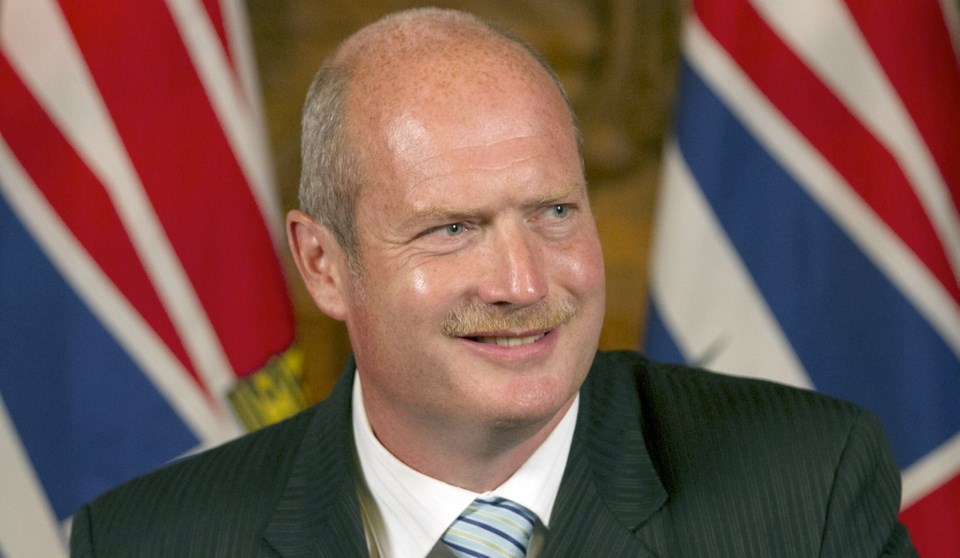In its bid to balance the budget, the province has announced a series of targeted tax measures worth $1.2 billion over three years that would take a bite out of the business community's bottom line.
This year alone a suite of tax changes introduced in Tuesday’s budget is expected to provide an additional $327 million in revenue to the province, the vast majority of it coming from a one per cent increase in the corporate income tax rate.
Effective April 1, the province plans to increase the general corporate income tax rate to 11 per cent from the existing 10 per cent.
B.C. Finance Minister Mike de Jong noted in his budget speech the rate remains 33 per cent lower than it was in 2001, and B.C. remains behind only Alberta and New Brunswick in terms of the tax burden on corporations.
But it will bring in an additional $205 million this year, $197 million in 2014-15 and another $200 million in 2015-16. According to the province, that will mean total corporate revenues will increase to $2.4 billion in 2015-16 from the $2.2 billion this year.
The small business rate is not affected by the tax measures.
De Jong said because B.C. had “worked so hard for so long to keep taxes low,” the province would remain competitive. But he admitted tax increases were not an ideal option.
“I’d prefer not to ... the guiding principle here was to achieve balance,” he told reporters, adding there were a range of choices, including adding a tax on capital, that were rejected.
Included in the new tax measures, the province has announced it wants to phase out school property tax credits for light industry in the 2013 tax year, a move which is expected to net the province an additional $32 million in revenue this year and $55 million in 2014.
Currently, the province offers a school property tax credit that reduces school taxes on both major and light industrial properties by 60 per cent.
But as of this year, light industrial properties, which include wineries, small sawmills, value-added wood producers, printing operations, sand and gravel pits and the like, will see that tax credit cut in half and eventually eliminated in the 2014 tax year.
“For major industry — including sawmills, pulp mills and mines — the credit will remain unchanged,” de Jong said in his budget speech. “But we are starting to scale it back for the light industrial class. The value of the credit for these properties will decline from 60 per cent to 30 per cent in 2013, falling to zero in 2014.”
The business community’s response to the tax measures was fairly muted Tuesday as the bigger concern remains the return to the provincial sales tax from the harmonized sales tax on April 1.
“Business is more than happy to do its share,” said John Winter, president of the B.C. Chamber of Commerce. “Our concern is business is facing a $1.5 billion tax increase just by going back to the PST. It’s the largest single tax imposed on business in the history of B.C. not to mention the cost of compliance.”
The $1.5 billion reflects the estimated loss of embedded tax credits to business under the HST regime. “It’s disappointing, but realistic,” said Winter of the budget measures. “But there is no recognition in this budget of the pain business will face going back to the PST … and at the same time some signal to investors that this is still a good place to invest and grow would have been appropriate — they are not there.”
Jock Finlayson, executive vice president of the Business Council of B.C., echoed those sentiments adding the competitiveness of B.C. has been damaged by the tax measures.
“The [one per cent hike in corporate tax] in and of itself is not a major development, but in the context of everything else — a return to the PST, the high Canadian dollar, the carbon tax half of which is paid by business — all adds to the cost of doing business here and government isn’t reacting adequately to those concerns,” Finlayson said.
But for the most part, the business community seemed to understand what the government wanted to do with the budget.
Bruce Carter, CEO of the Greater Victoria Chamber of Commerce, said the government didn’t have much choice. “They needed to cut spending a little, and raise taxes a little bit and there was nothing Draconian in this. It’s a balanced approach and appropriate,” he said.
Carter’s biggest issue with the budget had to do with the phasing out of the school property tax credit for light industrial properties.
“That’s a significant expense [for business] for a really small gain on the revenue side. These are folks trying to employ apprentices and facing challenges,” he said, noting there will be a number of Victoria properties — wineries, small ship-building and repair operations and gravel pits — that will be affected.
The Vancouver Board of Trade gave the overall budget a B+ grade in a hastily prepared report card Tuesday, but offered only a B- when it came to tax competitiveness.
“The resulting impact on tax competitiveness remains a key focus item for our members,” said Lori Mathison, chairwoman of the Board of Trade’s government budget and finance committee. “Mitigating the return to PST, in terms of both the financial and administrative costs to small business and other employers, and interprovincial competitiveness, will be monitored very closely in the coming months.”



